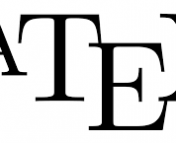Maybe you chose STEM because you didn’t like writing and only wanted to do research, or maybe you like writing. Regardless of your current stage, writing skills are required for academia. Fortunately, these skills are clearly defined and you can improve on them. Just like you don’t have to be a math genius to learn basic math, you don’t need to be a natural writer to thrive in academia. Nor do you have to be good at speaking English; plenty of non-native English speakers become competent academic writers.
What kind of writing are we talking about?
When I say academic writing, I don’t mean high school or SAT/GRE essays. I’m talking about writing that you’ll inevitably have to produce at every step of your research career. Before applying to grad school, you need to write application essays. In grad school, you need to write thesis proposals, research papers, and conference abstracts. If you want to apply to academic jobs like postdocs or faculty, you need to write grant proposals and teaching statements. More specific to astronomy, we need to write proposals for telescope time or supercomputing time. In a practical sense, you need to explain why you are the one to hire or fund, and convince other people to spend resources on your project. In the broadest sense, writing allows you to communicate your ideas and results.
Isn’t my research more important than my writing?
First of all, you need to write like an academic to be accepted as an academic. It may be true that your content is ultimately more important, whether that be a huge research breakthrough or a promising new project. But people will not trust you if the writing seems to come from a novice. To describe the computational time of simulations, a student might write “N-body simulations are slower with more particles” but a more experienced researcher would say “direct summation has O(N^2) time complexity.” Instead of “the curves are smooth,” it’s more precise and more appropriate to say “results converge statistically.” Astronomy has its own dialect, and you can use it fluently to write like an expert.
Moreover, writing is thinking. Your thinking does not end after coming up with a great idea. You also need to convince other people that your idea is important for your field, and worth the time and money you requested. True story from my officemate: his telescope time proposal received a low ranking, but one year later his advisor re-organized the writing and re-submitted with the same science goals and figures, and got the observing time! The additional thinking about how to convey your idea to the desired audience is what made the difference. The skill of persuasion is not limited to writing telescope proposals. If you learn how to do this, you can convince people to care about anything that you care about, like I’m attempting now!
What if I can’t write?
I would argue that anyone can learn academic writing. Like learning basic math, you need resources to teach you and give you supportive feedback, and you need to practice. As long as you have those two things, talent is not required. Your goal is to write clear, compelling arguments that sound academic. This can be learned just like research skills.
For example, it may seem daunting to write in an academic tone, but there are concrete steps to get there. Essentially, you are doing the reverse of what we do at Astrobites. You need to use technical terms properly because they eliminate ambiguity (e.g. O(N^2) has a specific meaning while “slow” is relative and imprecise). You need to cite sources and use those previous conclusions to support your claims. When you reference other people’s work, a slight change in a verb can signal your opinion on their conclusion (compare “Smith et al. proposes …” and “Smith et al. claims …”). That implied meaning should match with your results (e.g. if your results agree with Smith et al., which verb is better?) or else the readers will be confused.
In addition to language choice, the structure of many scientific writing pieces are also well-defined. This article explains how to write the introduction section of a research paper. Intro sections tend to follow a linear structure: starting from a broad overview of a subfield, you quickly narrow down to the specific topic and identify a gap in existing literature. Then, explain new developments that allow your project to fill that gap, which leads to a summary of the project steps at the end of the introduction section. Similarly, discussion sections also have a certain structure outlined here. If you are writing your first research paper, these guides can help you organize your draft.
At the end of the day, practicing writing trumps any other advice. It will take some iterations to implement the suggestions we gave you. The best kind of writing resource is people who can give you supportive feedback, which may or may not be your advisor. If your university has a writing center, use those resources to improve your writing. They likely also have seminars on how to manage your time and deal with writing stress or procrastination. If you don’t have one at your institution, there are plenty of online resources and books on academic writing. Think of writing as part of your training to become a scientist!
Astrobite edited by Lindsay DeMarchi
Featured image credit: Zili Shen



